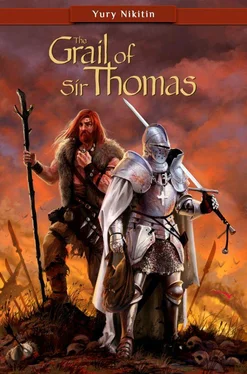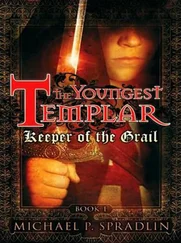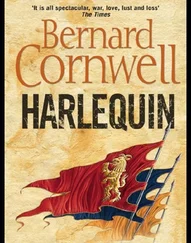Yury Nikitin - The Grail of Sir Thomas
Здесь есть возможность читать онлайн «Yury Nikitin - The Grail of Sir Thomas» весь текст электронной книги совершенно бесплатно (целиком полную версию без сокращений). В некоторых случаях можно слушать аудио, скачать через торрент в формате fb2 и присутствует краткое содержание. Жанр: Фэнтези, на английском языке. Описание произведения, (предисловие) а так же отзывы посетителей доступны на портале библиотеки ЛибКат.
- Название:The Grail of Sir Thomas
- Автор:
- Жанр:
- Год:неизвестен
- ISBN:нет данных
- Рейтинг книги:5 / 5. Голосов: 1
-
Избранное:Добавить в избранное
- Отзывы:
-
Ваша оценка:
- 100
- 1
- 2
- 3
- 4
- 5
The Grail of Sir Thomas: краткое содержание, описание и аннотация
Предлагаем к чтению аннотацию, описание, краткое содержание или предисловие (зависит от того, что написал сам автор книги «The Grail of Sir Thomas»). Если вы не нашли необходимую информацию о книге — напишите в комментариях, мы постараемся отыскать её.
The Grail of Sir Thomas — читать онлайн бесплатно полную книгу (весь текст) целиком
Ниже представлен текст книги, разбитый по страницам. Система сохранения места последней прочитанной страницы, позволяет с удобством читать онлайн бесплатно книгу «The Grail of Sir Thomas», без необходимости каждый раз заново искать на чём Вы остановились. Поставьте закладку, и сможете в любой момент перейти на страницу, на которой закончили чтение.
Интервал:
Закладка:
Thomas touched the bag with Holy Grail – it had become as a habitual gesture of his as fingering charms to the wonderer – and followed his friend. The huge sword in well-fitted scabbard seemed rooted in the wonderer’s back, and the compound bow and quiver of arrows were fastened tightly with wide belts. Thomas tied up his belt on the go, lest his sword ring on the armor, came up with his friend and walked shoulder to shoulder with him.
Chapter 39
The sun had hidden below the edge of the earth long before, the dusk thickened. The heads of silver nails, which the Lord nailed the firmament with, were growing brighter the darkening sky. The waning moon got an evil glint, and Thomas recalled inopportunely, with a shudder of shoulders, that it was the sun to dead men who rise from their graves at night and roam the roads, to vampires and other unchristian things.
They walked along a narrow path winding under the steep bank. A thundering tide, as though a sea one, rolled in a shore. Far in the river, there was a glimpse of a bare back, a laughing face, then a splash of big fish tail and the strange creature vanished.
They came to a broad moorage made of thick logs driven into the river bottom and thinner logs atop them: glittering, tightly fitted, with trimmed sides. Those were new, good moorings.
Oleg nodded at a house of logs that stood on a steep hill. “The house of ferryman… The ferry comes from the other bank at dawn tomorrow. You’ll cross for Kiev. That means Britain at your hand: across Czech, Germany, and France.”
“And you?”
The wonderer gave no reply, made his way slowly up the slope to the house. Thomas shrugged. His belly was rumbling: he ate nothing all the way they made on dragon’s back, and then the serpent took away on his back all the remaining thirty-eight sacks of meat – the gift of savage steppe dwellers. The ropes will burst in a narrow cave, sacks drop down. Enough for the dragon to eat for a long time. The wonderer thought out everything: he only shouldn’t have judged of some peculiarities of Christian face. We could have earned eighty sacks of meat instead of forty…
There was a loud croak within his belly, a stir of guts demanding meat. Hastily, Thomas drove away the thoughts of food and young Polovtsian maidens, came up to the house of logs. It looked blind, with windows covered with no shutters but thick planks from inside.
Oleg walked along the wall, holding on the logs, feeling and patting them. His face looked strange. They heard a big dog in his kennel barking loudly, a menacing clang of his chain.
“Let’s go,” Thomas said. “Want to spend a night here? It is warm. We can have it on the moorings.”
“Wait…” Oleg groped about the windowsill, brought some parcel hastily to his eyes, sank down on the ground with a happy sob, leaning his back on the wall. “Home!.. Great Rod, I’m at home!”
Thomas caught him, helped him up his feet, as the dog started creeping out of his warm kennel, snarling. They went back to the moorage, Oleg sat down on logs, unfolded the parcel. Thomas gulped down: on wide burdock leaves, there was a dark round loaf of rye bread, two slices of meat, half a dozen onions. “Your charms told you that?” he asked with great respect.
Oleg broke the bread, offered Thomas. “They had.”
Thomas shook his head. “I need no stolen food.”
“Fool. It was left to us.”
“Sir wonderer… who save the Secret Seven could know we are here?”
“Rus’ knows. We’re in Rus’ already, see?.. The surest sign is the bread on windowsills. We have a custom of leaving some food to beggars, outcasts, travelers, pilgrims. At daytime hosts would give it himself, and when they go to sleep they leave it on windowsills.”
Thomas all but snatched the bread from him, dug his teeth in it, growling. The hunk of bread was dry. It would have been fed to pigs or goats and prospering hosts would bake a new one, but to the travelers even that dry bread tasted better than king’s meal. “Wonderful custom,” he agreed with his mouth full. “What’s the name of this country, you say?”
Big fish splashed in the water, a broad path of moonlight silver led from the moorings to the other bank. They sat on the end of the moorage, their feet dangling. The wonderer swayed his foot, Thomas looked with disapproval – swaying your feet is swaying demons on it – but said nothing. The wonderer’s face was strangely grim, though he was back to his city!
Thomas stripped off his armor: his body was itching all over. The dark water, warmed up during the day, welcomed him. He washed sweat and dust off joyfully, scratched his skin with strong nails, groaned through gritted teeth. As the dark dirt came off, a white spot got visible on his right shoulder.
“You love water, descendant of Pelop…” Oleg muttered with a strange note in his voice.
“What is Pelop?” Thomas grunted. “I’m worn out with your impious hints! And you keep dropping more and more of them.”
“Pelop,” Oleg spoke in a pompous drawl, definitely imitating someone, “was a hero, a son of Tantalus who killed his son and served to gods as the best of all courses. That was the time of such customs and such gods… But gods suddenly got angry: they stopped eating human flesh a day before… The father of Zeus would eat it but Zeus himself would not, only the flesh of animals… So the gods told Hermes to bring poor Pelop back to life. Hermes collected the meat and boiled it again in the same pot. And Pelop came out, even more beautiful, that’s the way of it… but one of his shoulders was missing. It was gobbled by Demeter, in her noble brooding and grief for her lost daughter. But Hephaestus was also a guest there, so he made a new shoulder of ivory bone. Since that, all descendants to Pelop have this white spot on their shoulder.” 26
Thomas stopped, waist-deep in the water, listened but frowned, just in case. The wonderer’s speaking of some Pagan. A Pagan – but a hero too. “I saw some other man having this spot,” he said warily. “In the Holy Land… I’m afraid that was a leader of Saracen!”
“So what?” Oleg wondered. “Pelop has traveled a lot over the world.”
“Did Polovtsians live among Saracen in those times?” Thomas asked sarcastically. “I will never forget you those Kumans…”
“Hardly they did, but good customs live everywhere.”
Thomas frowned up, feeling hurt. “Paganism!” he grunted. “Some Pelop… I am Malton, no Pelop. What he did else?”
“What life made him to,” Oleg said composedly. “Became a king, but then Il, the king of Troy, all but captured him in his kingdom, Pelop had to flee him by sea. In Greece, he wooed Hippodameia, but her father made it a condition that her husband must outdistance him in chariot racing. The father either had a man’s interest in her or was foretold to die of his son-in-law… In a word, Pelop incited the king’s driver to replace by stealth the bronze linchpin with a wax one. When the chariots rushed on, the king gave a head start to his rival, as he always did, and started to come up to spear his back… To put it shorter, his chariot overturned and the king was a bulky and very heavy man, so he got hurt. To his very death! The driver came asking Pelop for what he’d promised him, including the wedding night of his bride, but Pelop pushed the fool off into the sea. While falling down, that man cursed all the posterity of Pelop.”
Thomas scratched the dirt off all the slower, listening. “I can believe in the curse. That may be why the two of us got into such scrapes. But one of my own ancestors killing a man treacherously? Even a fool? No. I am Malton.”
“As you like,” the wonderer said indifferently. “The curse haunted all of his posterity, especially Atreus and Thyestes… Haven’t you heard of them? By the way, Pelop spread his rule over all the southern Greece, or Apia, so it was re-named after him – Pelop’s Isle. Or Peloponnesus.”
Читать дальшеИнтервал:
Закладка:
Похожие книги на «The Grail of Sir Thomas»
Представляем Вашему вниманию похожие книги на «The Grail of Sir Thomas» списком для выбора. Мы отобрали схожую по названию и смыслу литературу в надежде предоставить читателям больше вариантов отыскать новые, интересные, ещё непрочитанные произведения.
Обсуждение, отзывы о книге «The Grail of Sir Thomas» и просто собственные мнения читателей. Оставьте ваши комментарии, напишите, что Вы думаете о произведении, его смысле или главных героях. Укажите что конкретно понравилось, а что нет, и почему Вы так считаете.












